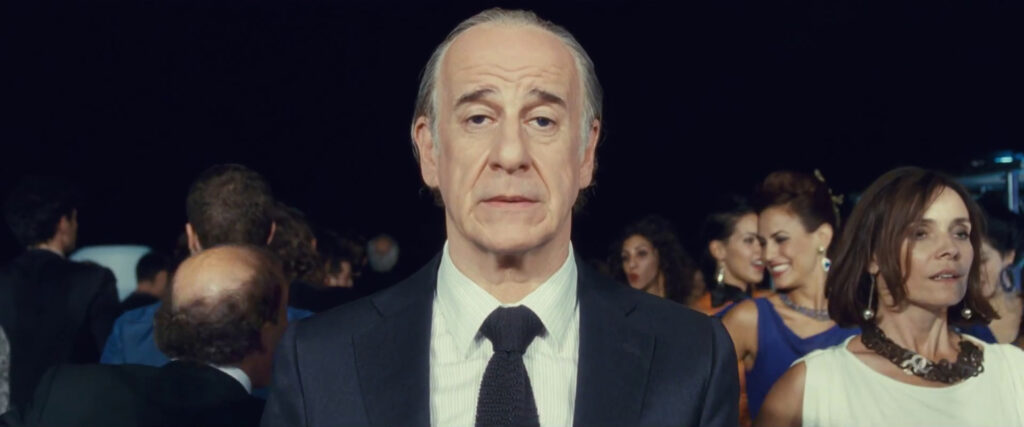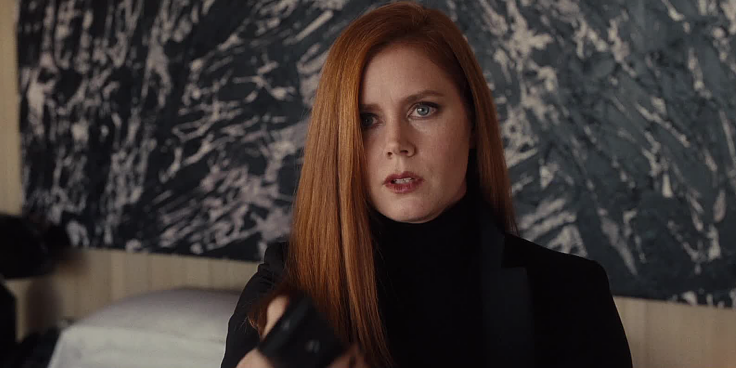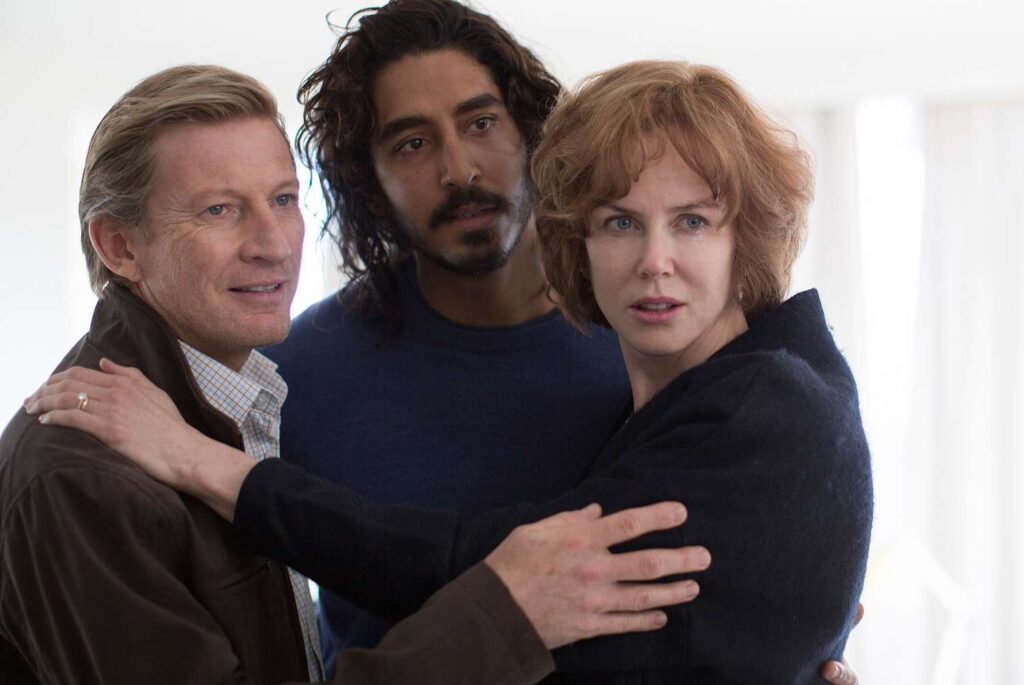I was struggling to come up with a fitting topic to address for my first proper article on movies. I couldn’t decide whether I should go for something broad, a baseline for my thoughts on the industry, before diving into specific reviews, or just a simple review of a movie I saw recently or wanted to discuss. I opted to go for something in between, having seen three very different movies this week, I will now briefly provide an overview of my thoughts on them, as I believe this will give you a basis for an idea of what I tend to like or dislike in movies, despite my attempts to be objective in my criticism.
I will dub this format of article as Week Watch, because I’m not that original with names, but hopefully it will come together nicely, and I may do it again in the future for another random week. Okay, let’s do it:

La Grande Bellezza (The Great Beauty) – 2013:
This is the most recently viewed movie for me on this list, having seen it just yesterday, which already might be a mistake as I get the feeling this movie intends to be dwelled on for a while after watching it. But I’m not sure of that, and I think that is my main problem with this film. To establish some context for my opinion, the movie is about a writer/journalist, Jep, who has lived in Rome for all his life, enjoying the luxuries and excesses of the high life in that city. Having just turned sixty-five, he begins to contemplate the absurdity of that lifestyle, and what great beauty might be beyond that worth living for. The premise sets the stage for an interesting and introspective drama. After all, a protagonist in his sixties who continues to indulge in a life of partying is not exactly the norm in movies, and to its credit, the movie does portray that life as somewhat alluring, especially in the opening scene with Jep’s birthday party. In fact, the whole movie works really well with its presentation, the shots are really beautiful to look at and there are some strong moments in the score that raise the quality of the drama unfolding on screen. Additionally, the movie also succeeds in showing the viewer how this life of nonsensical partying, despite looking great is quite hollow, at least to Jep, which builds strong motivation for the character, who very well portrayed Toni Servillo.
However, despite starting strong, and with plenty of interesting places to go thematically, I didn’t see the movie doing much with it. There’s a lot of build-up for revelations or changes to arrive for Jep and his group of friends, and they do, but without any substance besides saying “wealth isn’t everything, luxury is empty and without meaning it does not bring fulfillment”, and I got that idea from as early as the opening scene. Plot points and characters arrive and go just as quickly and I’m left wondering what exactly their point was, what theme was behind their arc, what was their influence in Jep’s life beyond reinforcing the same idea. It’s not that the movie is constantly hitting you with the same moral or message, it’s just that, when it’s not reinforcing the absurdity of the high life, I’m not sure what it’s doing. It’s one of those cases where I believe the movie thinks it’s saying a lot more than what it’s actually transmitting, and maybe I’m just too shallow to see it as I know this movie has a lot of fans who will say I didn’t understand it, which likely is the case. If so, let me know, but for now, I think it’s alright, but not great.

Nocturnal Animals – 2016:
I saw this movie without knowing anything about Tom Ford, or his previous film, A Single Man. I just liked the premise, and I tend to really like Jake Gyllenhaal, so I watched it. Now, I might actually watch A Single Man, just out of curiosity for what type of themes are addressed by Ford in that movie.
Nocturnal Animals engaged me, in a way that surprised me because, given the structure of the plot, a similar movie might lose me. But Ford, and the original author of the novel Austin Wright, are to be commended for telling this story in the most perfect way that keeps the audience interested, intrigued, wondering, and at the end, wanting more, but in a good way.
The plot revolves around a woman, Susan, played by Amy Adams, who is a successful and wealthy art gallery owner is Los Angeles. However, she is in a loveless marriage with her husband Hutton, for whom she left her previous husband Edward, played by Jake Gyllenhaal, 19 years prior to the start of the movie. Now, Edward, who for years struggled to become a writer, sends Susan a copy of the finished manuscript of his book, called Nocturnal Animals, which is dedicated to Susan herself. As the movie unfolds, we cut back and forth between the story of the book itself, a thriller about a father (also played by Jake Gyllenhaal), who loses his family tragically due to a few very villainous characters, and Susan as she reads the book and starts reminiscing about her relationship with Edward, as aspects of both stories seem to blend together in her mind.
The script of the movie is very meticulously structured, quite well too, but it’s the actors who elevate and make each scene compelling to watch, one after another. Gyllenhaal and Adams do great work, but in different ways, the former really selling the tension within Edward’s novel, and the latter giving a great portrayal of growing anxiety and self-doubt, as Susan begins to question the choices she made earlier in life while reading her ex-husband’s book, which is surprising given how bland Susan’s scenes might have been on their own. Michael Shannon also has a standout performance within the book storyline as an aging detective who helps out Gyllenhaal’s character Tony track down the murderers of his family.
One comes to suspect, along with Susan, that Edward’s book constitutes some sort of revenge carried out by the writer on his ex-wife for how she treated him in the latter stages of the relationship, and the ending of the movie pretty much confirms this. The mirroring of the two stories is interesting since, as we come to find out through Susan’s flashbacks, the splitting between her and Edward is rough, particularly so due to an action carried out by Susan after they break up, but while it is not pleasant, it’s nothing like the brutal actions carried out in Edward’s book, which I believe says something about how we interpret the actions of those around us in our minds, and compound them multiple times over. There’s definitely some catharsis in Edward’s story, but understandably so given what he went through. Likewise, Susan, while appearing to become blinded by the desire to succeed to the detriment of her appreciation of Edward, is also not totally unsympathetic. She is never rude, or particularly mean-spirited, and even when she acts in ways we do not condone, she doesn’t take pleasure in those actions.
Ultimately, I think the movie has a lot to say about relationships, how we perceive them when we’re in them and when they end, about the perceived roles we play in them, especially for men, and it asks us to rethink what we really want out of life and out of our partners. It’s a pretty good movie, shot competently, well edited and scored, but from which what you’ll really remember is the story, the characters, and the performances. I’d recommend it if you’re looking for an interesting drama that will leave you thinking.

Lion – 2016:
The last of the movies on this week’s list is most probably the easiest of the three to go over, which I think might be the film’s greatest strength and weakness at the same time. Lion tells the real-life story of Saroo, a young boy from a small village in India who is separated from his family by getting lost while in the city with his older brother. He ends up in Calcutta and is unable to communicate the location of his hometown, being perceived as a lost orphan, and so is then adopted by an Australian family with whom he grows up. Twenty-five years after being adopted he sets out to find his birth family again, by tracking down the location of his village.
Lion is a well-done movie, no doubt about it. It has good direction, cinematography, sound, writing, acting, editing and pacing. And more than that, it’s quite accessible. It’s a movie that can be enjoyed by pretty much anyone, at any time. Unfortunately, though, it doesn’t go beyond that, and it isn’t really that original. To the movie’s credit, I don’t think it’s meant to do more than what it does, from a narrative, thematic or cinematic point of view. However, a side effect of this is that for one who has seen this type of movie before, there’s not a lot to impact you in a very strong way.
But there are truly great aspects to this movie, and I’ll go over them. First off, I’m surprised with how engaging the movie manages to be in its second half, given the majority of Saroo’s investigation boils down to Google Earth search sessions in the comfort of his home in Australia. Somehow, the drama with his girlfriend, his adoptive parents and his other adopted Indian brother manages to hook you in so that it doesn’t become stale, which I have to commend the movie for managing to pull off. Additionally, there are interesting things being said about the nature of adoptive parenthood, especially with children who may be in ways traumatized or scarred from earlier experiences in life. The movie does this really well with strong scenes involving Sue, Saroo’s adoptive mother, explaining how she and her husband John arrived at the decision to adopt two Indian boys and accepting their heritage, rather than having children of their own. These scenes are very well written and acted. In fact the acting in the movie is great across the board, both in the first and second halves, there’s not one weak link.
There’s not a whole lot more I can say about Lion, I would definitely recommend it, I think it’s a solid movie that deserves your attention if only for the fact that it shines a light on a story that happens way too many times to way too many children, but that, at least in this case, can have a happy ending.

